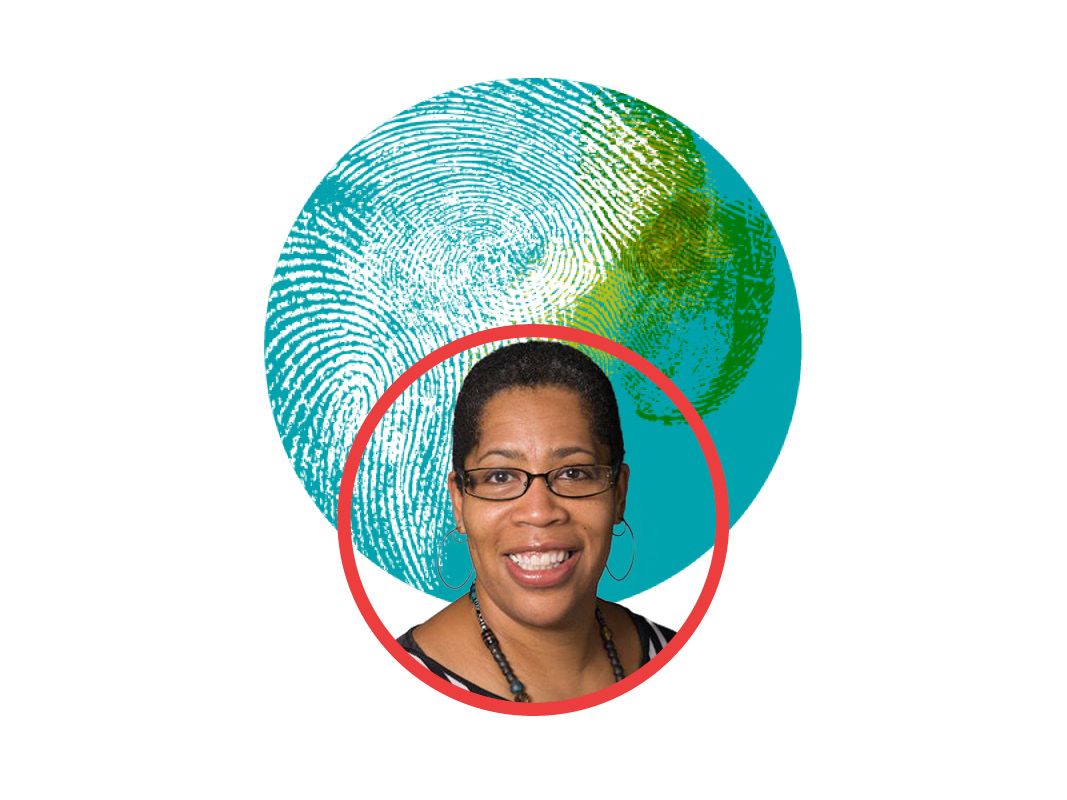Mary Frances Early College of Education
Diversity, Equity, and Inclusion Conference
Monday, March 22, 2021
What’s Education Got to Do with It?

Monday, March 22
11:30 a.m.-noon
Welcome and land acknowledgment
Marian Higgins, Associate Dean of Diversity, Equity, and Inclusion, Mary Frances Early College of Education
Denise Spangler, Dean, Mary Frances Early College of Education
Marques Dexter, Assistant Director of Student Initiatives, Office of Institutional Diversity
Reflections by Mary Frances Early
Mary Frances Early (M.M.Ed. '62, Ed.S. '67) played an integral role in the campaign for racial equality that helped open the doors for generations of students at the University of Georgia. Her triumph as the first African American graduate of UGA made her a central figure in the struggle to desegregate the University and serves as an example to all.
Introduction of Cynthia B. Dillard (Nana Mansa II of Mpeasem, Ghana, West Africa)
Amber Neal, Ph.D. student, Department of Educational Theory and Practice
Noon-1 p.m.
Keynote speaker
Cynthia B. Dillard (Nana Mansa II of Mpeasem, Ghana, West Africa), Mary Frances Early Professor of Teacher Education, Department of Educational Theory and Practice
Keynote: “An Invitation, A Sanctuary and Space to Live Your Legacy: Embracing the Spirit of Education”
What does it take to be joyful in the work of teaching, learning and living? As students, staff, and faculty, our first thought often focuses on pursuits of our minds, on high achievement, being successful, or doing well. Missing is attention to what animates us or the spirit of our work. In this lecture, Dillard will explore the essential role of spirit in education, particularly how (re)membering is a key part of being whole and being well in our work. Examples will be drawn from Dillard’s forthcoming book, “The Spirit of Our Work: Black Women Teachers (Re)member” (Beacon Press). This work is based on a seven-year study of Black women teachers and the joy and healing they experienced through (re)membering Black cultural and heritage knowledge. While Black women are not the only people who can (re)member, we do embody multiple intersectional and cultural identities that educational professionals need to know and learn from. By exploring the power and humanity of Black women as we articulate the conditions required for healing and joy, all in attendance will find important lessons on their own journeys to being the teachers and educational professionals that Black students deserve and that all students need.

Keynote speaker Cynthia B. Dillard
Keynote speaker Cynthia B. Dillard
About Cynthia B. Dillard
Cynthia B. Dillard (Nana Mansa II of Mpeasem, Ghana, West Africa) is the Mary Frances Early Professor of Teacher Education in the Department of Educational Theory and Practice at the University of Georgia’s Mary Frances Early College of Education. Her research interests include critical teacher education, spirituality in education, and African/African American feminist studies. Beyond numerous published articles, book chapters, and scholarly presentations across the globe, two of her books, “On Spiritual Strivings: Transforming an African American Woman’s Academic Life” (SUNY Press, 2006) and “Learning to (Re)member the Things We’ve Learned to Forget: Endarkened Feminisms, Spirituality and the Sacred Nature of Research” (Peter Lang, 2012) were selected as Critics’ Choice Book Award winners by the American Educational Studies Association (AESA). Her fourth book, “The Spirit of Our Work: Black Women Teachers (Re)member” will be published in fall 2021by Beacon Press.
In addition to receiving numerous awards for her teaching, research, and service, Dillard was awarded the prestigious Taylor and Francis AESA Lifetime Achievement Award in 2019. She is also the recipient of the 2012 AERA Distinguished Contributions to Gender Equity in Education Research Award, given for her distinguished research and practices that advance public understanding of gender in education, and received the Division G Henry T. Trueba Award at the 2016 AERA annual meeting. This prestigious award honors a researcher whose scholarship and teaching has led to the transformation of the social context of education. Dillard is also the director of the University of Georgia’s Ghana Study Abroad in Education Program and has founded and directed a preschool and elementary school in Mpeasem (M-pee-a-sem) in the Central Region of Ghana, West Africa. There, she also holds the distinct honor of being enstooled as Queen Mother of Development (Nkosua Ohemaa) for the village, an esteemed lifetime leadership position within the community. She also offers numerous and popular retreats to Ghana, West Africa through her small business, Full Circle Retreats Ghana. Additionally, Dillard serves as the executive director and president of GIVE.BUILD.SHARE, a nonprofit organization designed to support educational opportunities for children and families by building schools in Ghana.
2-3 p.m.
Concurrent sessions
Session 1a: Soul Work: Utilizing Black History Knowledge to Facilitate Student Development, Healing, and Liberation
Shawntell Pace, Ph.D. student, Department of Counseling and Human Development Services, Mary Frances Early College of Education
Brian Garrett, Regional Program Director, SMASH
Collette Chapman-Hilliard, Associate Professor, Department of Counseling and Human Development Services, Mary Frances Early College of Education
Racism and race-based violence toward Black bodies can be particularly harmful to school-aged Black students. Classrooms represent a pivotal social microcosm for combating anti-Black racism. Research demonstrates that Black History Knowledge (BHK) is important for all students’ psychological and social development. The purposes of this workshop are to introduce educators to the BHK framework and illustrate the utility of BHK within classroom settings to address anti-Black racism.
Read more about the presenters.
Session 1b: A Virtual Reckoning: Building and Maintaining Virtual Communities for Students of Color
Wade Manora, Jr., Ed.D. student, Department of Lifelong Education, Administration, and Policy, Mary Frances Early College of Education
As student affairs professionals grapple with a COVID-19 world, it is important that we consider how to maintain student communities. The success of students of color on our college and university campuses largely depends on the success of the communities that we create. Despite COVID-19 threatening community sustainability, our students still depend on them to thrive. This presentation will address strategies for building and maintaining virtual communities for students of color.
Read more about the presenter.
Session 1c: Equity in Gifted Education: A Case Study
Holly Amerman, Ph.D. student, Department of Mathematics and Science Education, Mary Frances Early College of Education
This presentation explores one white woman's journey to change racial attitudes in a largely segregated city school system to improve diversity in the gifted program. The presenter discusses what drove her to do it, how she collaborated with minority teachers to make it happen, the obstacles faced, and how the group quadrupled the number of Black students, doubled the percentage of Hispanic students, and changed attitudes and opinions of what it means to be gifted.
Read more about the presenter.
Session 1d: Creating a Vision for Joy, Healing, and Collective Action to Support Social Justice and Liberation
Regina Finan, Ph.D. student, Department of Counseling and Human Development Services, Mary Frances Early College of Education
A vision board is a visual manifestation of your goals and intentions. This creative collage of words and images can help individuals illuminate what is important and meaningful (Burton & Lent, 2016). There is documented support for the benefits and usefulness of various forms of imagery and visualization. This session will facilitate an actionable goal-setting, attitude-adjusting, intentions-claiming activity to promote joy, healing, and collective action in our work towards social justice and liberation. This session will require participants to do some work prior to the session. Come prepared with:
• Images, letters, words, quotes, etc. cut out from magazines/printed
• Printer (if you want to find and print images during the session)
• Picture of yourself
• Tape or glue
• Scissors
• Pens, markers, crayons, highlighters, etc.
• Posterboard, corkboard, pinboard, foam core board, etc.
• Other decorative items (ribbons, stickers, etc.)
You can bring a variety of magazines, images, stickers, and more so that you have multiple options to work with, or you can curate a collection that resonates with you when you think of these things: social justice, liberation, joy, healing, and collective action. Don't overthink it! This is not a one-and-done. You will create something that you can come back to, add, or even start a new one!
Read more about the presenter.
Session 1e: Let’s Talk about It Now! Facilitating Difficult Conversations in the Classroom
Jonette Marcus, The Equity Firm
Tamera Slaughter, The Work Before the Work
Let’s talk about COVID-19, anti-Black violence, and the presidential election. This session is for educators who desire guidance in facilitating difficult conversations. Participants will be actively engaged through platforms including YouTube, Jamboard, Padlet, and/or Poll Everywhere. We must create psychologically safe spaces for our students, which begins with honesty. Participants will leave with six actions that will help to create a psychologically safe space for facilitating difficult conversations in the classroom.
Read more about the presenters.
